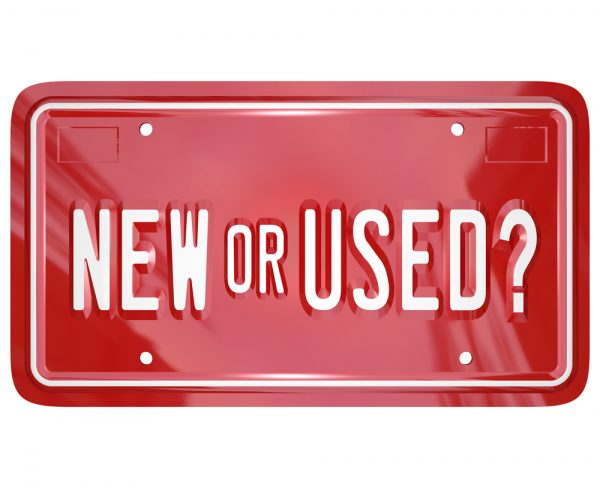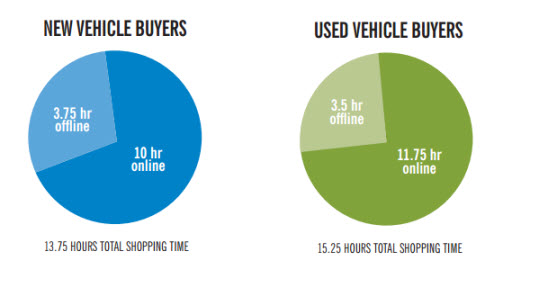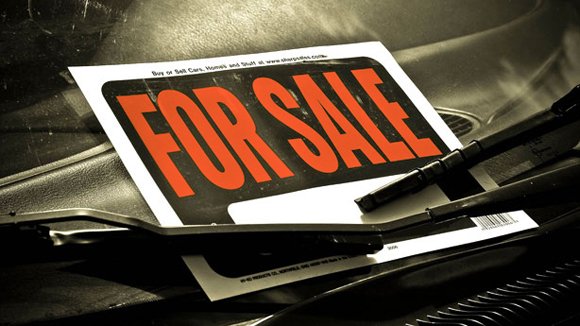
When shopping for a new vehicle, much more than just the make and model you desire has to be taken into consideration. There’s fuel efficiency, safety ratings, dependability, future cost of repairs, practicality, availability, and many more factors that bear scrutiny.
The purchase of a car is one of the largest single outlays most people will make in their lives. Perhaps one of the most important choices facing the buyer is the question of whether to buy a new car or a buy a used car. There are pros and cons associated with each option, so a wise shopper will carefully weigh his or her options before making a final decision.

Should I Buy a New Car?
There are certainly a few perks to purchasing a brand new vehicle. First of all, buying straight from the factory may earn the buyer a lower interest rate. This means that the car costs less over the life of the loan.
Not to be overlooked is the warranty that comes with a new car. In most cases, there will be very few mechanical issues during the first years of a vehicle’s life, so the only costs associated with repair will be maintenance fees. However, should something go wrong, it’s reassuring to most people to know that their problems will be taken care of without having to part from any hard-earned cash.
Another advantage of buying new is that the car will be equipped with the latest equipment and technology, which equals greater fuel efficiency and a more interactive experience behind the wheel. Many drivers with long experience in driving prefer brand-new cars. This being said, before purchasing any new vehicle it’s vital you check the invoice pricing and feedback for the vehicle like the reviews here, to see what previous buyers have to say about the model.
The problem with purchasing a new model is that they generally don’t retain their retail value very well. In fact, as soon as the vehicle leaves the dealership, the buyer technically loses money on it, as even if you sell immediately the car will value of the car will have dropped. For people who are looking at this new car as an investment, this isn’t an attractive thought. In the first two to three years, the value of a new car will decline significantly, meaning that chances of recouping one’s initial outlay are small indeed. Anyone who is considering selling the vehicle after a year or two would be better off not buying new.
New cars do indeed have more cutting edge mechanics and technology, but these might not have all the glitches and bugs fully worked out. If a company chose that particular year to experiment with a new engine or transmission it could prove defective for example, or at least not as functional as prior year models. Purchasing a new car at the very least requires significant research.
 Should I Buy a Used Car?
Should I Buy a Used Car?

The primary advantage of a used car is the mitigation of the biggest disadvantage of a new car: the initial depreciation. In the case of a used vehicle the depreciation has been absorbed by the first owner – always a desirable outcome. If in the next few years, the consumer decides to change vehicles again, he or she stands a good chance of selling relatively close to the original price paid, as the depreciation is a lot less on subsequent years.
Although some dealerships will not finance a used car, smart shoppers can find great interest rates through dealerships that do, or local banks are an option. Many find it easier to not worry about financing at all and simply save up the cash to buy a used car, something that is not possible for most people when considering a new vehicle.
It is also possible to save money on an insurance policy by purchasing used. Insurance companies don’t charge as much to insure older vehicles, which is an important consideration.
The downside of buying a used car is obvious: it could have problems – problems that are not immediately apparent on a test drive. Unwary buyers may find themselves saddled with a vehicle that requires major repairs to make it reliable transportation. This issue is somewhat alleviated by the practice of dealerships selling certified pre-owned vehicles. These vehicles have undergone rigorous mechanical checks and come with a new limited warranty.
Cars are generally more dependable and better built than in past years, so many of them do not experience major issues until they’ve passed the 100,000-mile mark on the odometer or have been on the road for over 10 years. Still, it pays for anyone buying used to be cautious and give the vehicle under consideration a thorough vetting before making a decision.
Another slight problem with buying used is that sometimes a buyer will have a certain picture in his or head of what the new car should look like, and the options available don’t always match that picture. Buying used might mean compromising on some aesthetic aspects of the vehicle.
In the end, there is no one right answer for everyone. Individuals have to decide for themselves how much money they want to spend and the risks they are willing to take. The best policy is to always explore all options as far as financing goes and make sure that the vehicle being purchased is sound under the hood. Once those issues are addressed, the buyer can feel much more confident about the decision that he or she is making.
